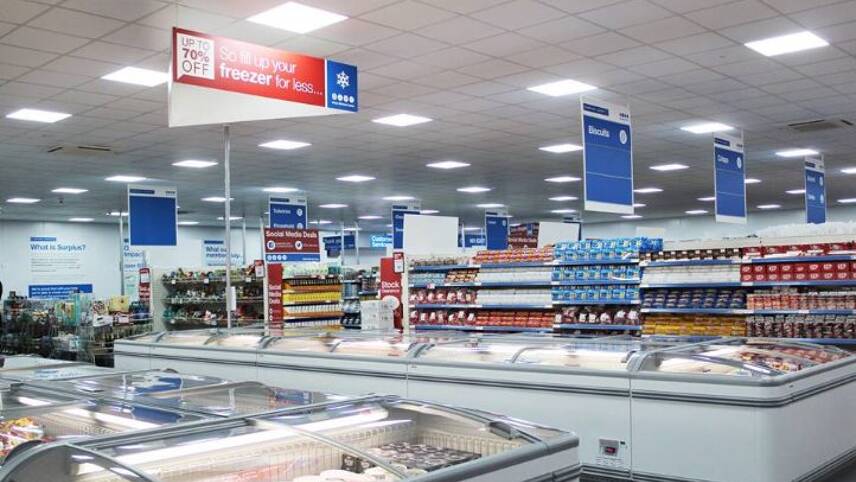Register for free and continue reading
Join our growing army of changemakers and get unlimited access to our premium content

The frozen goods will be redistributed to Company Shop member who work in food manufacturing
Called ‘chill to freeze’ and operated by food and household product redistribution business Company Shop, the technology enables fresh products to be frozen within a matter of minutes, preserving their quality and extending their shelf life.
This enables retailers to ensure that any high-value chilled products with limited shelf lives can reach the end of their redistribution journey before they spoil, preventing them from ending up as food waste and helping them to reach more consumers in need.
Company Shop announced this week that M&S, Iceland, Aldi, Sainsbury’s and the Co-op have all given their backing to the innovation, meaning they will shortly begin sending surplus chilled stock to the redistributor for blast freezing. The firm also confirmed it was “in talks” with a number of other large food retailers.
Through the firm’s redistribution model, the supermarket chains will receive payment for the frozen products, which will be distributed to Company Shop members. Key members include the NHS and local ambulance, police and fire and rescue services.
Supermarkets will also be able to track the journey of their products and receive information about the environmental and social impacts of their deliveries, once they have been completed.
“At M&S, we pride ourselves on the quality and freshness of our food and believe it’s just too good to be wasted, so we’re always finding new ways to accelerate towards our goal of halving our food waste by 2025,” M&S’s head of human rights, food sustainability and food packaging Louise Nicholls said.
“Company Shop’s ‘chill to freeze’ process will enable us to go further and faster and most importantly, will help us to redistribute more food to communities nearby our stores. We’ll make sure 100% of our surplus food ends up on a person’s plate.”
“Company Shop handled 70 million food and household items in 2018 to prevent them from going to waste,” Company Shop’s senior client manager Joanna Holland added.
“Chill to freeze will enhance our capabilities so that we can take even more surplus stock and help ensure it gets used for the purpose it was originally intended for.”
Food and waste hierarchy
The announcement from Company Shop comes as the Department for the Environment, Food and Rural Affairs (Defra) is consulting on a string of measures outlined in its updated Resources and Waste Strategy, which was published shortly before Christmas 2018.
The strategy, which is the first of its kind in the UK in more than a decade, proposes that the Government should require local authorities to provide weekly collections of food waste for every household. At the moment, only 35% of households in England are obliged to put food waste in their own caddy.
As for businesses, the framework includes the introduction of annual reporting of food waste by food businesses, which could become mandatory in the coming years.
Such measures, Defra claims, could help the UK develop a system in which redistribution is always the first option for food deemed fit for human consumption.
Around 43,000 tonnes of surplus food is currently redistributed from retailers and food manufacturers every year, but the Government estimates that a further 100,000 tonnes are sent to be converted into energy from waste (EfW), included in animal feed or anaerobically digested annually. A further 250 million meals end up in landfill annually.
Environment Secretary Michael Gove has previously dubbed the fact that edible food is not always reserved for human consumption “bad for business” and morally indefensible”.
In a bid to address the issue, Defra recently launched a £15m scheme to help businesses redistribute surplus food. The Department has also appointed its first ‘food waste champion’ to Government, in a drive to help Ministers set ambitious policies around food waste. The position is held by philanthropist Ben Elliot, who is tasked with helping the UK achieve zero-food-waste-to-landfill status by 2030.
Sarah George


Please login or Register to leave a comment.